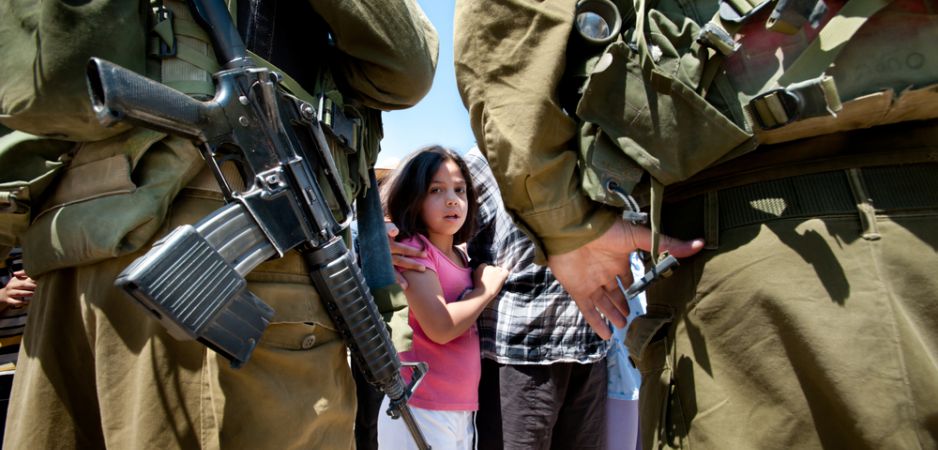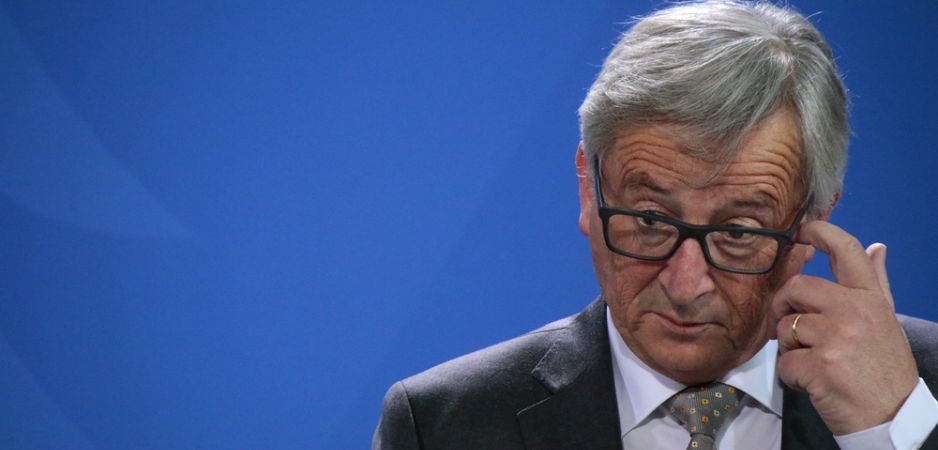Genocide in Myanmar and cannibalism in South Sudan are mere trifles compared to the catastrophic forest fires in Indonesia.
The brown and yellow races mingle where the borders of Bangladesh, Myanmar and India meet. Less than seven decades ago, these lands were part of the British Empire. Largely autonomous tribes that had intermittently warred in small-scale conflict were squashed together as the British forged European-style state systems and exploited natives for economic gain. Now, these natives are turning on each other and religion is adding a toxic element to the conflict.
Eric Arthur Blair, who went on to be known as George Orwell, served in Myanmar. He was an officer in the Indian Imperial Police and hailed from a family of imperialists. His father worked for the opium department of the imperial government, forcing Indians to grow opium for the Chinese market. It is the same trade that Afghan farmers try to ply today without the British Empire’s political and economic nous. The aftershocks of British actions continue to this day from Palestine to Myanmar.
The collapse of the British Empire in South Asia was brutal and bloody. Communal violence erupted as British India gave way to India and Pakistan in 1947. It led to the biggest migration in history and exponentially higher deaths than all the subsequent wars in the region since. Pakistan itself imploded soon thereafter, and Bangladesh was born in 1971 because Bangladeshis were tired of the torture, killings and mass rape by Pakistani troops.
It seems it is now the turn of Myanmar to emulate Pakistan. This week, a report published by Yale University Law School concluded that “the abuses of Rohingya Muslims’ human rights in Myanmar’s Rakhine State amount to genocide.”
An estimated 1 million Rohingyas live in Rakhine, a state bordering Bangladesh on the Bay of Bengal. In the late 19th and early 20th century, the British brought Bengali Muslims to work the paddy fields of the region, just as they had taken slaves to Jamaica and indentured labor to Fiji to work on sugar plantations. Thant Myint-U, a historian of Myanmar, records that as many as 480,000 Indians were arriving in Rangoon in 1927. For a time, Rangoon beat New York to become the biggest immigration port in the world. An iconic 1949 Indian song celebrates a telephone call from a pining husband in Rangoon to his wife back home. The song reflects the reality of its time. Myanmar was administered as a province of British India and Indians formed a majority in the country’s biggest cities.
 Naturally, such a huge influx of immigrants led to tensions. In Rakhine, animosity emerged between Buddhist natives and Muslim newcomers. The situation turned so tense that the British set up a commission to investigate immigration in 1939. In 1942, the British armed the Rohingyas to fight the Japanese, but this resulted in full-scale communal violence with the natives coming off worse in the process. After the British packed their bags, Rohingyas demanded secession from Myanmar and a merger with Pakistan. When Pakistani leaders did not give them much support, they launched a jihad for an autonomous Muslim state.
Naturally, such a huge influx of immigrants led to tensions. In Rakhine, animosity emerged between Buddhist natives and Muslim newcomers. The situation turned so tense that the British set up a commission to investigate immigration in 1939. In 1942, the British armed the Rohingyas to fight the Japanese, but this resulted in full-scale communal violence with the natives coming off worse in the process. After the British packed their bags, Rohingyas demanded secession from Myanmar and a merger with Pakistan. When Pakistani leaders did not give them much support, they launched a jihad for an autonomous Muslim state.
After the 1962 military coup in Myanmar, General Ne Win decided it was payback time. The military started hunting the Rohingyas with ferocity and many had fled to Bangladesh as refugees.
Today, Myanmar is gearing up for elections as the military steps into the shadows but, as in Sri Lanka, ethnic Buddhist nationalism is now on the rise. Rohingyas have become convenient whipping boys in the process. Ma Ba Tha, also known as The Association for the Protection of Race and Religion, is an ultra-nationalist xenophobic group that is becoming increasingly powerful. Ashin Wirathu, a charismatic monk who is known as the “Burmese bin Laden,” has been warning about the impending Muslim takeover of Myanmar.
The extremists are backed by elements in Myanmar’s military who seek to retain power through creating a climate of fear. Islamophobia is so strong in Myanmar that iconic Nobel laureate Aung San Suu Kyi has not selected a single Muslim candidate for her party. The forthcoming election in Myanmar is certainly not going to be fair, and it is highly unfair to Muslims who will not be represented by a single candidate.
As the Yale Law School observes, security personnel, government officials and Rakhine natives have targeted Rohingyas and subjected them to arbitrary detention, torture and rape. In one of Orwell’s stories, the protagonist bitterly hated “the dirty work of Empire,” but still felt that “the greatest joy in the world would be to drive a bayonet into a Buddhist priest’s guts.”
It is such priests that are fueling paranoia against Rohingyas, who themselves are falling prey to their own charismatic Muslim clerics and taking to violence. On May 28, 2012, riots broke out after three Rohingya men raped and killed a local 27-year-old seamstress. Thereafter, a Buddhist mob killed ten Muslim men in retaliation, leading to riots where both sides slaughtered each other with fanatical zeal.
The Rohingyas have suffered enormously because the military backs the native Rakhine community. While the military supports Buddhist reactionaries, Saudi money is flowing to Rohingyas in Myanmar and to neighboring Bangladesh—where most Rohingyas trace their roots—promoting puritanical Islam. Like elsewhere, Saudi-inspired radicalization is pouring fuel into the fire, and religious fanaticism on both sides is increasing the risk of a broader conflict.
Rakhine is relatively peaceful compared to South Sudan. Investigators from the African Union (AU) have discovered mass graves and recorded testimony of “the extremely violent nature of the rape of women and girls – that in some instances involved maiming and dismemberment of limbs.” Details of “killings, abductions, disappearances, rapes, beatings, stealing by forces and being forced to eat dead human flesh” have emerged.
President Salva Kiir, a Dinka leader, appears to have sanctioned the slaughter of Nuer men because Riek Machar, his rival and former vice president, is a Nuer leader. The formation of Westphalian European-style states in Africa is far too often a ruthless struggle for power and patronage that results in bloodlust. South Sudan is no exception. Although Kiir and Machar have signed a peace agreement, conflict still continues.
Even as violence rages elsewhere, “a great tract of Earth is on fire.” Yet as George Monbiot points out, mainstream media is largely ignoring the phenomenon. Nearly 10,000 active fires have been detected in Indonesia in 2015. Along with the trees, the land is burning too because Indonesian forests sit on great domes of peat. When fires penetrate the earth, they can smolder for months, releasing toxic amounts of methane, carbon monoxide, ozone and exotic gases such as ammonium cyanide.
Since September, Indonesia is generating more emissions per day than the US. More than 2 million hectares (20,000 square kilometers) of forest have been reduced to ashes. More than 500,000 people are suffering from respiratory ailments and at least 19 have died. Even neighbors such as Malaysia and Singapore are enveloped in haze. Orangutans, clouded leopards, sun bears, gibbons, the Sumatran rhinoceros and Sumatran tiger are among the many endangered species under threat of extinction.
It is a great tragedy that these fires are man-made. Like Myanmar, Indonesia is a former colony where European powers arrived to extract resources. Even today, its economy continues to rely on commodities. Consequently, annual fires are set off to clear forests so that the land can be used to produce palm oil and paper. Writing in the Jakarta Globe, Erik Meijard has called Indonesia’s fire crisis the biggest environmental crime of the 21st century. Indonesian President Joko Widodo has cut short his visit to the United States to deal with the fire crisis that his government has handled with spectacular incompetence.
As Indonesia suffers damage to the tune of multiple billions of dollars, none of the richer countries are chipping in to give cash, share expertise or send resources to fight a disaster that is devastating the planet. More importantly, few are questioning an economic system based on wasteful consumption that is wrecking the environment.
Despite the raging fires, Marco Rubio, a promising presidential candidate in the US, helpfully points out that human activity is not really changing the environment. For many leaders of the world’s biggest polluter, combating climate change is not worth the cost to the economy.
*[You can receive “The World This Week” directly in your inbox by subscribing to our mailing list. Simply visit Fair Observer and enter your email address in the space provided. Meanwhile, please find below five of our finest articles for the week.]
“Strong Evidence” of Genocide Raises Stakes in Myanmar
Genocide is the most serious charge that can be levied in international law and should not be taken lightly.
The existence of persecution, severe human rights abuses and a high risk of mass atrocities has long been recognized in Myanmar. But now a newly released assessment finds “strong evidence” that genocide may already be underway.
These findings both raise the stakes for Myanmar’s embattled Rohingya minority and beg the question of why a push for protection and an international investigation to ensure accountability have not been launched.
The assessment, carried out by Yale Law School’s Lowenstein Human Rights Clinic, and featured in a new Al Jazeera English documentary, finds that the Burmese government deliberately triggered communal violence, incited anti-Muslim riots and targeted the Rohingya minority. It is based on evidence collected by Al Jazeera English and the Southeast Asia-based advocacy group Fortify Rights. Their investigations include a mix of eye witness and victim testimonies, confessions of former officials and confidential government documents.
The violence and high risk of atrocities in Myanmar… Read more
What Erdogan Does Next
The future of Turkey hangs in the balance, and society is more polarized than it has ever been under the AKP.
Since the general election of June 2015, which led to a hung parliament, Turkey has found itself embroiled in three instances of terrorism. In each case, the disproportionate victims have been Kurdish in origin. The Diyarbakir bombing in early June killed four people. The Suruc bombing in July took 33 lives. The Ankara bombing on October 10, in the nation’s capital city, killed at least 128 mostly young people. The last tragedy happened just three weeks before another general election on November 1, where the outcome is likely to remain the same as it was in June.
It is still unclear who is behind these terrorist attacks or what it all means for the immediate future of Turkey, although considerable focus has pointed toward the Islamic State (IS).
Many observers and critics have blamed IS for the Ankara bombings which, for some others, implicates the current Turkish government… Read more
The Folly of Israeli Apartheid Knows No Boundaries
The aim of the resistance is to free Palestine and to give Palestinians the rights they deserve, says Miko Peled.
The courtroom in Jerusalem was small with whitewashed walls and a few simple, uncomfortable wooden benches. The air conditioner didn’t work well, so the room was either too cold or not cool enough. The atmosphere was very causal. No one announced or stood when the judge entered. The prosecution and the defense council were too busy with their papers, and the defendants—me among them—were caught by surprise as the door to his chambers opened and the judge entered and sat in his chair.
Under the circumstances, the whole thing seemed a waste of time. There I was, along with two other defendants, charged with participating in disturbances in a protest in the village of Nabi Saleh in the West Bank in 2012. Considering that during the month of October, armed Israeli vigilantes and soldiers have been killing and injuring young Palestinians wholesale and getting away with it… Read more
Challenges Facing the EU Today
With a refugee crisis, a banking union and the prospect of a Brexit, the European Union is faced with a host of questions. Former Prime Minister John Bruton explains.
We are in a time of war—not in Europe itself, but close enough to its borders to have led to massive outflows of refugees into the continent. The situation was described at the EPP Congress as the “most serious crisis for the European Union since its creation.” This is not an exaggeration.
The refugee crisis has reached an unprecedented level, because the Syrian and Iraqi conflicts are at a ferocity and intensity not seen since World War II; up to 300,000 people have been killed in the Syrian Civil War alone.
Most of these people are not coming to Europe for economic reasons, or because they are on a mission of any kind, but because they are in fear of their lives. They are seeking refuge. They are the human embodiment of the price of war. Their plight is… Read more
Modi Should Denounce Sectarian Violence in India
Sikhs across the globe are up in arms over sectarian violence in India and are calling on Prime Minister Modi to respond.
On October 14 in Punjab, northern India, violence erupted amid a peaceful protest. The protesters were Sikh, from a religion native to the region but with followers all over the world. The violent actors, who killed two and injured some 80 or more, were local police.
When I first saw my fellow Sikhs adopting the hashtag #SikhLivesMatter, despite my initial wariness at their cooption of the moniker used by African American activists, I accepted it. I assumed there was a direct comparison being made between unwarranted state action, the devaluation of human life and a call for accountability.
Over the past few weeks, as the global Sikh community exploded with anger and concern, I was shocked to see how my community focused on issues that were beside the point.
Time was lent in major media outlets, after an on-air protest, to assess the concerns as they were actually… Read more
The views expressed in this article are the author’s own and do not necessarily reflect Fair Observer’s editorial policy.
Photo Credit: Photo Story / Shutterstock.com
 We bring you perspectives from around the world. Help us to inform and educate. Your donation is tax-deductible. Join over 400 people to become a donor or you could choose to be a sponsor.
We bring you perspectives from around the world. Help us to inform and educate. Your donation is tax-deductible. Join over 400 people to become a donor or you could choose to be a sponsor.
Support Fair Observer
We rely on your support for our independence, diversity and quality.
For more than 10 years, Fair Observer has been free, fair and independent. No billionaire owns us, no advertisers control us. We are a reader-supported nonprofit. Unlike many other publications, we keep our content free for readers regardless of where they live or whether they can afford to pay. We have no paywalls and no ads.
In the post-truth era of fake news, echo chambers and filter bubbles, we publish a plurality of perspectives from around the world. Anyone can publish with us, but everyone goes through a rigorous editorial process. So, you get fact-checked, well-reasoned content instead of noise.
We publish 2,500+ voices from 90+ countries. We also conduct education and training programs
on subjects ranging from digital media and journalism to writing and critical thinking. This
doesn’t come cheap. Servers, editors, trainers and web developers cost
money.
Please consider supporting us on a regular basis as a recurring donor or a
sustaining member.
Will you support FO’s journalism?
We rely on your support for our independence, diversity and quality.











